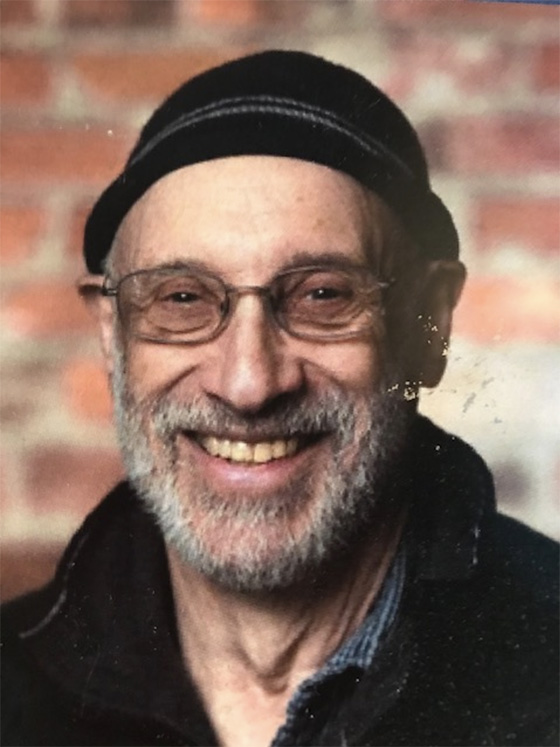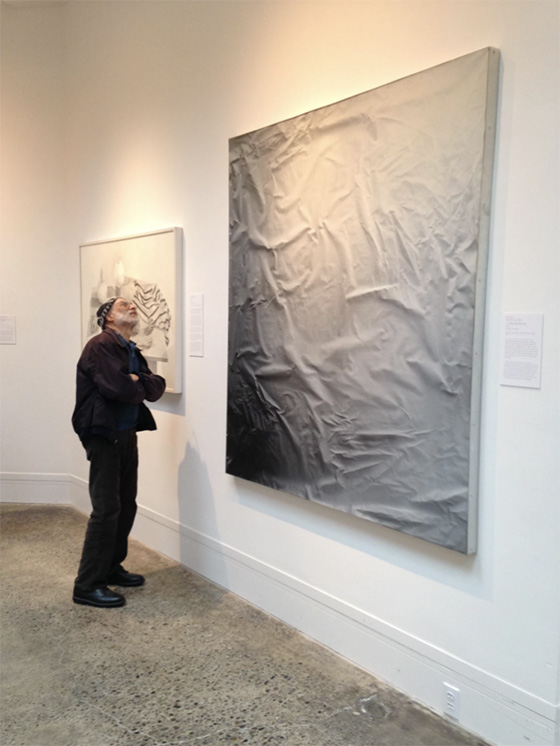Determined to “Just Live My Life”
“It’s really changed me, given me an opportunity and a sparkle that I didn’t have before.” – Carl D.

It is not the average person who would reflect on the ways a diagnosis of Alzheimer’s Disease had enhanced his life. But there was nothing “average” about Carl. He would sometimes say that had it not been for his diagnosis in 2014, he and his wife Susan would never have met so many wonderful people in the ensuing years.
When Carl and Susan attended their first ARTZ @ The Museum program in 2015, they were not at all certain it was for them. They were hardly strangers to looking at art; Susan is an artist and educator, Carl, a physicist and educator, and curiosity and imagination were their stock-in-trade. But as Susan has described the preamble to that experience, “The day dawned, and Carl was feeling uncertain. He was not so sure about going. It was hard to get out of the house; there were a number of false starts. I, too, was anxious, unsure about the mechanics of getting there, whether it was the right thing for us, worried about being late. Maybe this was not such a good idea. We left a bit later than we expected to, neither terribly happy.”
Within minutes of their arrival at Woodmere Art Museum for that day’s program, however, Carl had already asked our director, facilitating the session, if he could approach the painting in front of which everyone was seated, and look at it more closely. Natural teacher that he was, he took up with relish the role of “reporting back” to the group about what he saw in the details of the piece, and did so in a way that engaged everyone fully in this moment of mutual exploration. When the program ended and Carl and Susan were leaving to go home, Susan recounts that “Carl turned to me, eyes sparkling and said ‘That was FUN!’”
Carl never looked back. He and Susan became regulars at all of our ARTZ @ The Museum programs. They served tirelessly as mentors to medical and nursing students in our ARTZ @ Jefferson program, from the pilot in 2016 through four more semesters and eight more students. Their students were devoted to them, and even as Carl’s verbal eloquence waned, his consummate teaching skills, caring nature, and irrepressible sense of humor carried him and his students through to intimate and profound connections.
Carl and Susan were interviewed for the radio show “This American Life” about their experiences pushing back against the stereotypes of inevitable and precipitous intellectual decline with dementia. They created art together from recycled copper extracted by Carl from old televisions and bundled in beautiful ways, that was exhibited at Main Line Art Center and at Penn Memory Center. They were the subjects of the jewel-like short film “Moment to Moment: Love in the Wake of Dementia” by award-winning Philadelphia filmmaker Mike Attie. Throughout, Carl was clear that he wanted nothing more or less than to live his life with meaning; and perhaps to teach others all that he could along the way by doing so.

In the last year of his life, Carl imparted to us one of the greatest lessons of all. As his illness had progressed, Carl the physicist and “math guy,” Carl the innovator and builder, had become Carl the deconstructer, the un-doer. As we at ARTZ sought to find meaningful ways to engage with him, we realized that this was no random un-doing – this was purposeful and determined deconstructing. De-constructing had become as pressing a mission late in his life as constructing had been in his heyday. And so – with Carl as our guide — we began to formulate a new program around the principle of constructive un-doing. Unravelling rather than weaving. Dismantling rather than putting-together.
As you can read elsewhere on this site, Carl’s ultimate gift as an educator gave us the very essence of a new program we had been asked to create by one long term care community for their residents living with the most advanced stages of dementia.
On April 16, 2020, Carl passed quietly from the earth. His legacy, however, is everywhere in the ARTZ Philadelphia community: in the love and affection he inspired in all of our program participants, both with and without dementia, through his wit, good naturedness and insights; in the health professions students whose lives he changed, gently but profoundly; and in all of us on staff, who were made better by every encounter with him.
